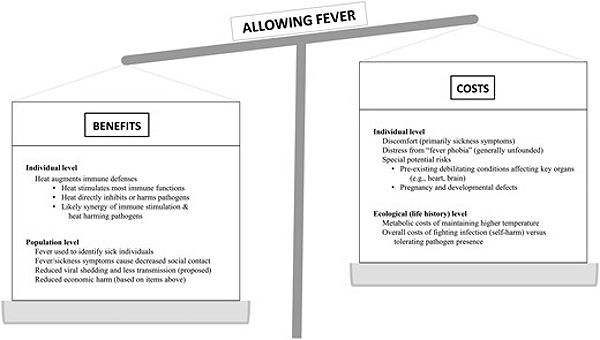Can I Take Berberine Before Bed For Better Sleep? A Guide To Timing And Benefits
If you’re one of the many people struggling with insomnia, you’ve probably tried a variety of remedies to get a good night’s sleep. Fortunately, there’s a natural supplement that may be able to help — berberine. This plant-based compound has been used in traditional Chinese and Ayurvedic medicine for centuries, and recent research suggests it may also have benefits for sleep quality. Can I take berberine before bed? This article will explore whether taking berberine before bed can actually improve your sleep, as well as discuss the optimal timing, dosage, and potential side effects to consider.
What is Berberine and How Does it Work?
Berberine is a bioactive compound that is extracted from several plants, including barberry, goldenseal, and Oregon grape. It has a long history in traditional medicine, where it’s been used to address a variety of health issues.
Recent studies have shed light on berberine’s mechanisms of action, highlighting its potential benefits for metabolic health. Berberine has been shown to enhance insulin sensitivity, reduce inflammation, and help regulate blood sugar levels. For individuals dealing with conditions like insulin resistance or type 2 diabetes, these effects can be particularly useful.
But how does berberine relate to sleep? Emerging research suggests that berberine may have a positive impact on sleep quality, potentially by influencing factors like blood sugar regulation and the nervous system.
Berberine’s Natural Origins and Traditional Uses
Berberine is a natural compound found in various plants, including barberry, goldenseal, and Oregon grape. These plants have been used for centuries in traditional Chinese and Ayurvedic medicine to address a wide range of health concerns, from digestive issues to skin conditions.

The historical use of berberine-containing plants highlights the long-standing recognition of this compound’s potential benefits, even before modern scientific research delved into its mechanisms of action.
Berberine’s Mechanisms of Action
Berberine’s impact on health is multifaceted, influencing several biological pathways. Some of the key mechanisms through which berberine may exert its effects include:
-
Insulin Sensitivity: Berberine has been shown to enhance the body’s sensitivity to insulin, a hormone that plays a crucial role in glucose metabolism and fat storage. Improved insulin sensitivity can lead to better glucose utilization and reduced risk of excess glucose being stored as fat.
-
Blood Sugar Regulation: By helping to stabilize blood sugar levels, berberine can prevent the sharp spikes and dips that can contribute to cravings and overeating, making it a valuable tool for weight management.
-
Anti-Inflammatory Properties: Berberine possesses anti-inflammatory effects, which may have implications for various health conditions, including metabolic disorders and cardiovascular health.
These mechanisms, particularly the impact on blood sugar regulation and insulin sensitivity, may contribute to berberine’s potential benefits for sleep quality, as discussed in the following sections.
Can I Take Berberine Before Bed to Improve Sleep?
While the research on berberine and sleep is still limited, there is some anecdotal evidence and preliminary findings that suggest taking berberine before bed may be beneficial for sleep.
Anecdotal Evidence and User Reports
Many individuals have reported experiencing improved sleep quality after incorporating berberine into their nighttime routine. Some have shared that they fall asleep faster, experience fewer nighttime awakenings, and feel more rested in the morning. However, it’s important to note that individual responses can vary, and these reports are not a substitute for scientific research.
Research Findings and Limitations
The existing research on berberine’s effects on sleep is still in its early stages, with a few studies showing promising results. For example, one study found that berberine supplementation helped improve sleep quality in individuals with type 2 diabetes, potentially by stabilizing blood sugar levels.
However, the research is limited, and more long-term, large-scale studies are needed to fully understand the relationship between berberine and sleep. The current findings are interesting, but they don’t provide a definitive answer on whether taking berberine before bed will consistently improve sleep quality.
Potential Benefits for Sleep
Based on the available evidence, here are some of the potential benefits of taking berberine before bed for better sleep:
- Reduced time to fall asleep
- Fewer nighttime awakenings
- Improved sleep duration
- Enhanced overall sleep quality, with deeper, more restorative sleep
Again, it’s important to remember that these potential benefits may not apply to everyone, and individual responses can vary. The key is to be patient, monitor your own experience, and work closely with a healthcare professional to find the right approach for you.

Berberine Dosage and Timing for Sleep
When it comes to taking berberine for sleep, the recommended dosage and timing can vary based on individual factors and preferences.
Recommended Dosage and Frequency
Most healthcare professionals suggest starting with a lower dose of berberine, around 500 mg, and gradually increasing as needed. It’s generally recommended to take berberine 1-3 times per day, with consistency being the key.
However, it’s crucial to consult with a healthcare provider before starting any new supplement regimen, especially if you have any underlying health conditions or are taking medications.
Optimal Timing for Taking Berberine
While there’s no definitive evidence on the best time to take berberine for sleep, many experts recommend taking it 30-60 minutes before bedtime. This timing allows for the compound to be absorbed and potentially start working on improving sleep quality.
That said, you may need to experiment with different timing to see what works best for you. Some individuals may find that taking berberine earlier in the evening, such as with dinner, works better for their sleep. The key is to pay attention to your body’s response and make adjustments as needed.
Important Considerations
When taking berberine before bed, it’s important to keep a few things in mind:
-
Take it with a light snack: Taking berberine on an empty stomach may increase the risk of digestive discomfort, such as diarrhea or nausea. Consuming it with a small meal or snack can help minimize these side effects.
-
Monitor your response: Everyone’s body reacts differently to supplements, so it’s important to pay attention to how berberine affects your sleep. If you experience any adverse effects, adjust the dosage or timing accordingly.
-
Consult with a healthcare professional: Before starting any new supplement regimen, especially if you have any underlying health conditions or are taking medications, it’s crucial to speak with a healthcare provider. They can help you determine the appropriate dosage and timing, as well as address any potential concerns.

Potential Side Effects and Precautions
While berberine is generally well-tolerated, there are a few potential side effects to be aware of, especially when taking it before bed:
Common Side Effects
The most commonly reported side effects of berberine include:
- Digestive issues (diarrhea, constipation, gas)
- Nausea
- Headaches
These side effects are usually mild and tend to subside with continued use. Taking berberine with food can also help minimize these digestive discomforts.
Interactions with Medications
Berberine can interact with certain medications, such as blood thinners, diabetes medications, and some antibiotics. It’s essential to consult with a healthcare professional before taking berberine, especially if you have any underlying health conditions or are currently taking any prescription medications.
Who Should Avoid Berberine?
In general, berberine is considered safe for most people. However, there are a few groups who should avoid or use caution when taking berberine:
- Pregnant or breastfeeding women
- Individuals with liver or kidney problems
- People with certain medical conditions, such as gallbladder disease or Parkinson’s disease
As always, it’s best to speak with a healthcare provider before incorporating berberine into your routine, especially if you have any concerns or pre-existing health conditions.
FAQ
Q: Is berberine safe for long-term use?
A: While berberine is generally considered safe for most people, long-term use should be discussed with a healthcare professional. They can provide guidance on potential risks and help you determine the appropriate duration of use.
Q: Can I take berberine with other sleep aids?
A: It’s crucial to consult with a healthcare provider before combining berberine with other sleep aids, as there is a possibility of interactions. They can advise you on the safety and potential effectiveness of using berberine alongside other sleep supplements or medications.
Q: How long does it take for berberine to work for sleep?
A: Individual responses to berberine can vary, but some people may notice improvements in sleep quality within a few days or weeks of starting supplementation. However, it’s important to be patient and give the supplement time to take effect, as the benefits may build up over a longer period.
Conclusion
For those struggling with insomnia, taking berberine before bed may be a natural option worth considering. While the research is still limited, the available evidence and anecdotal reports suggest that berberine has the potential to improve sleep quality by regulating blood sugar levels and influencing the nervous system.
However, it’s crucial to work closely with a healthcare professional, especially if you have any underlying health conditions or are taking medications. They can help you determine the appropriate dosage, timing, and monitor for any potential side effects.
Remember, finding the right sleep solution is a personal journey, and what works for one person may not work for another. Be patient, listen to your body, and keep an open dialogue with your healthcare provider as you explore the potential benefits of berberine for better sleep.
MORE FROM hoc.info












